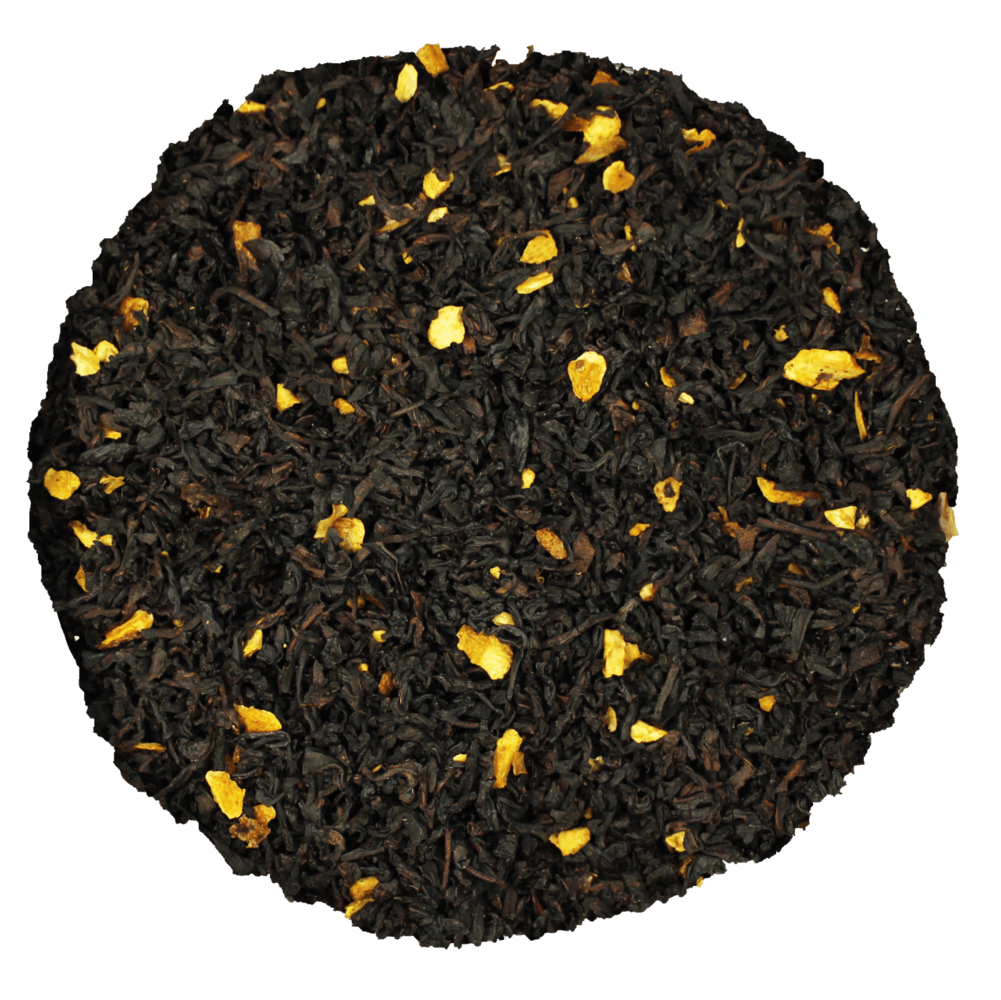When it comes to grief, there’s no pecking order. Nor is it a zero-sum game. The loss of a loved one brings on the worst type of grief. But many other things—some big, many small—trigger real grief too. And that’s totally okay.
“When so many people deal with tragic and traumatic losses every day, people inevitably struggle to know whether it’s right for them to grieve losses that happen on a smaller scale,” says Eleanor Haley, program director and co-founder of What’s Your Grief, who has a master’s degree in counseling psychology.
This is particularly potent when you’re bombarded with messages that your feelings aren’t worthy. Guessing you’ve heard one of these before: A isn’t that big a deal. B would never make me cry—I don’t get you. C—Dude… It’s time to move on.
Mental health practitioners regularly hear from patients about this type of grief invalidation. “Although nearly every person experiences these other forms of grief at some point, sometimes they can be more challenging to cope with since they aren’t talked about as often,” says psychiatrist Kristin Gill, M.D., chief medical officer at Minded, an online psychiatry company designed for women.
“Clients in my practice will often say, This isn’t something I should be feeling this sad about, or I shouldn’t feel this way because others have it worse, but all grief is valid no matter how big or small.”
That “others have it worse” refrain is singularly distressing, because it piles shame on top of grief. “When people are hesitant to identify non-death losses, we always remind them that one loss doesn’t take away from another,” says Haley. (Did you hear that, peeps?)
Here, we explore seven less recognized, less “sanctioned” ways grief can show up in your life. It is, after all, an intricate emotion. Once more of us accept its various forms, the kinder we can be to others…and to ourselves.
Surprising Grief Trigger #1: You’re Slowing Down
Ever noticed, in the middle of a kick-boxing session, Oy, my knees? Or, after playing on the floor with a toddler, Wow, why’s it so hard to get up?
A change in physical abilities during the 30s and 40s isn’t typically on the grand scale it can be for our elders, but in one recent survey, more millennials said they felt pain during daily activities than boomers (okay, millennial!). Cited as a contributing factor: Those crunched-over-your-computer, don’t-leave-your-seat, work-from-home conditions so many dealt with over the past few years.
And while your risk of developing a chronic disease increases as you age, a number of chronic health conditions affect women in generations X, Y, and Z. Per a 2022 CDC report, around 10 percent of adults under 35 reported high blood pressure and high cholesterol levels, and 6 percent have arthritis.
According to the Cleveland Clinic, 8 out of every 100,000 young adults have rheumatoid arthritis, in particular. There’s also fibromyalgia, typically diagnosed between the ages of 35 to 45 (with symptoms often starting earlier), and psoriasis, which usually begins to flare between 15 and 25.
Sign up for our free newsletter
Legit tips and cool copes, delivered straight to your inbox.
By completing this form you are signing up to receive our emails and can unsubscribe anytime.
We aren’t pointing this out to bum you out, but to explain that any bodily changes, and particularly chronic pain, can cause exhaustion, depression, and grief.
“Human beings crave control—control provides stability, safety, comfort, and predictability,” said psychologist Cynthia Shaw, Psy.D., adjunct professor at The Chicago School of Professional Psychology and owner of Authentically Living Psychological Services. “When we experience loss [of functionality], we no longer feel as if we are in control.” This can lead to distress, discombobulation, and fear.
Surprising Grief Trigger #2: Romantic Breakup
When a relationship goes down, grief can go up—even if the relationship was brief. According to a study in PLoS One, people who recently got dumped experienced symptoms of depression, more prominently in women than men.
This type of grief has its own name: disenfranchised grief, which occurs in situations society doesn’t typically acknowledge as worthy of emotional anguish. And though you’ll hear a lot of, You’re better off without them, your feelings are legit whether or not that’s true. One study found that breakup grief was disenfranchised most by parents and siblings.
There’s another romantic ending where grief gets disenfranchised, even stigmatized: when you were the one who walked away. People really don’t understand that. You made the decision, they say. So why are you upset?
Well, here’s why: No matter how things went down, bidding farewell to someone who was a big part of your life is a normal, natural reason to mourn. Mm-hmm, even if you asked your partner for a divorce. You deserve to grieve, too.
Your vision of the future has changed, as has your everyday routine, and your mind needs time to compute that. “Grieving is the conduit for our brains—we have to grieve to build a new worldview that exists without the presence of whatever we’ve lost,” says therapist Crystal Britt, LCSW, owner of Get Psyched Therapy & Coaching.
Before we close out the romance section of our programming, there’s one more area we want to hit on: You had a few Bumble dates you thought went well, then…nothing. No calls, no texts, no explanation. Getting ghosted fits into what’s known as “ambiguous loss,” a term coined by family therapist Pauline Boss more than 40 years ago to address loss without closure. (People can also feel this after the death of a loved one when they didn’t get to “tell them everything” they’d wanted to, or if they weren’t there to say a final goodbye.)
Surprising Grief Trigger #3: End of a Friendship
Outside of ghosting, most romantic relationships don’t end without a conversation (or many). But with a pal, the dissolution often happens in pieces, the two of you drifting apart without clear details of what went wrong. This uncertainty can leave you confused and, yes, grieving.
We’re supposed to just forget them because…we didn’t have sex with them? Platonic relationships simply don’t get their due, despite research showing that the connection derived from social groups can boost self-esteem, decrease loneliness and depression, and even help us live longer.
Another “friend” you may have to grieve one day? Your therapist. And we don’t mean at their funeral. If you graduate from therapy or have to switch pros for some reason, it’s not a nothingburger. This is a person who helped you through tough moments. They’re someone you relied on, and they’re no longer there for you. It hurts, even if the good-bye was amicable.
Surprising Grief Trigger #4: Infertility
Having a family is such a prevailing desire, you’d think there’d be a better collective understanding of how devastating infertility or fertility-treatment failure can be. Grief, after all, is an automatic response to the loss of an outcome or dream, says psychologist Leia Charnin, Ph.D., founder of ChangeWell Psych. “Two kids and a dog” is certainly a familiar dream.
What makes fertility issues especially excruciating is that they’re invisible—both literally and metaphorically. “Unfortunately, conversations about infertility are still taboo in our society, which can make this difficult time even harder, as there are few resources to turn to for help and support,” says Dr. Gill.
It’s a real problem, because fertility brings up all sorts of compounding emotions. In a study published in the International Journal of Environmental Research and Public Health, women who experienced infertility frequently reported feelings of despair, anxiety, frustration, isolation, and even guilt.
Surprising Grief Trigger #5: A Pet’s Death
Mental’s founder, Amy Keller Laird, spent a year looking for a full-time job after her company was acquired and restructured. As her family’s main breadwinner with an identity bound tightly to her career, she was nervous, lonely, and lost. Her cat, Monte, was a calming constant.
Over that year, at the age of 17, he grew ill and weak. The following January, Keller Laird accepted a new job, but also had to put Monte down—a decision she couldn’t help but question, even though he could no longer walk, control his bladder, or eat.
“He’d been with me practically my entire adult life at the time,” she says. “He was there when I lived alone in a Manhattan studio, through marriage and kids and five apartments and a move to the ‘burbs. It seemed like he held on until he knew I was going to be okay again. I felt acute despair when he was gone.”
Reams of research point to the mental and physical benefits of owning a pet, with one study citing “repeated exposure to oxytocin,” known as the happy hormone. As one Mental reader put it, “Pet grief is so uniquely painful because they never did anything to harm you, and their whole life orbits around you.” Give yourself time to mourn the loss, and try to celebrate your pet’s life in whatever way feels comfortable.
Surprising Grief Trigger #6: A Series Finale
Don’t turn to another channel just yet! Bear with us.
Of course losing fictional characters is low on the grief intensity meter. But it’s well-documented in psychological literature that we humans can form what are called parasocial relationships with public figures, including TV stars.
Parasocial relationships often exist when we lack social interactions or fear IRL rejection. And they exploded during COVID. According to one study, “During this time, people appear to have relied on social media and binge-watching streamed series to give themselves a feeling of connection with others more than ever before.”
A season finale can hit harder when you’re already in a bad emotional state. “I was devastated when Schitt’s Creek ended,” says one Mental reader. “It was the one consistent thing in my life at the time that I could rely on and felt ‘safe’ watching, and when it ended, I struggled. It was about losing a part of my daily routine that gave me a sense of familiarity and security.”
If you’re rolling your eyes, don’t. Grief is necessary, says Britt, even with something you may deem societally insignificant. Take Grey’s Anatomy. It’s been on for 19 seasons. That’s a long friggin time. It’s no stretch to theorize there are still tears being shed for Ellen Pompeo’s last episode.
Surprising Grief Trigger #7: The Passage of Time
If you’re reading this article, it’s possible you’re taking steps toward being the best version of yourself, or perhaps you’re trying to rise up from the brink of generational trauma. In order to grow and heal, you may find yourself grieving your old self. And guess what? That’s healthy.
No matter if the things you’re releasing were clearly not good for you. Change brings with it “this feeling that we ‘cannot get it back,’ ‘cannot relive it,’ and that it ‘is gone,’” says Dr. Shaw. “With permanence, we are also inadvertently confronted with the fact that time is passing, which can also be grieved.”
Whatever your situation, it’s important to know that grief, like most emotions, comes in waves—it’s rarely linear. “Myths and misconceptions about grief lead many people to think they’ll experience specific emotions for a finite amount of time,” says Haley, author of What’s Your Grief? Lists to Help You Through Any Loss. “They find themselves surprised when they discover that grief is an emotional, cognitive, physical, behavioral, spiritual, interpersonal, existential, and logistical experience.”
If you’re having a hard time moving on and feel like you should be further along, it’s helpful to talk to a therapist. But take this with you: Feeling grief outside of traditional loss is normal. It’s real. And it’s valid.
READ NEXT: How to Be Like Elsa and Let It Go, According to Therapists
Geek Out on Our Sources
Survey on Pain During Daily Activities: https://studyfinds.org/daily-aches-and-pains/
CDC Report on 18- to 34-Year-Olds: https://www.cdc.gov/mmwr/volumes/71/wr/mm7130a3.htm?s_cid=mm7130a3_w
Rheumatoid Arthritis in Young Adults: https://health.clevelandclinic.org/how-rheumatoid-arthritis-affects-young-adults/
Fibromyalgia Information: https://www.womenshealth.gov/a-z-topics/fibromyalgia
Psoriasis Information: https://youngwomenshealth.org/guides/psoriasis/
Romantic Breakups and Depression Symptoms: https://www.ncbi.nlm.nih.gov/pmc/articles/PMC6544239/
Breakup Grief and Family Members: https://journals.sagepub.com/doi/10.2190/CY1W-V6RL-0L5V-G4Q2
Infertility and Grief: https://www.ncbi.nlm.nih.gov/pmc/articles/PMC8701103/
Pets and Oxytocin: https://www.ncbi.nlm.nih.gov/pmc/articles/PMC3408111/
Parasocial Relationships During COVID: https://www.ncbi.nlm.nih.gov/pmc/articles/PMC7647887/






